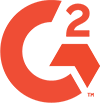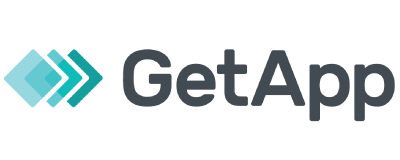All-In Recruitment is a podcast by Manatal focusing on all things related to the recruitment industry’s missions and trends. Join us in our weekly conversations with leaders in the recruitment space and learn their best practices to transform the way you hire.
This transcript has been edited for clarity.
Lydia: Welcome to the All In Recruitment podcast by Manatal, where we explore best practices, learnings, and trends with leaders in the recruitment space. If you like our content, please subscribe to our channels on YouTube, Apple Podcasts, and Spotify to stay tuned for our weekly episodes.
I'm your host, Lydia, and this week we have Jonathan Kidder of Amazon. Thanks for joining us again. It is really nice to see you again.
Jonathan: Thank you so much. Happy to be here.
AI’s Expanding Role in Recruitment
Lydia: So what has been on your priority list the past year, Jonathan? I mean, we have seen an exponential shift in technical recruitment. I can imagine what you have to say. How has this influenced your approach from the last time we spoke?
Jonathan: Oh, so much has changed. It is just so vastly different since the last time we spoke, last year or two. So much has changed within AI, generative AI, and creating prompts to using tools to source and engage candidates. There is just so much changing. It is just a crazy time to be in recruiting.
Lydia: And we will talk about all that later. But right now, what are some areas that you are prioritizing for technical recruitment?
Jonathan: So I would say, for us, especially using artificial intelligence in the process, interweaving that from the beginning as well. There are many new companies coming out with voice-generated artificial intelligence tools, utilizing sourcing agents, automating engagement, and managing all the backend tasks we are handling—preparing emails and supporting the entire process.
People and recruiters can interweave artificial intelligence into the entire process. That is something that is interesting. That is the recruiting side of what we are doing and building out externally.
It is interesting because a lot of candidates are now using artificial intelligence in both good and bad ways. Many candidates are utilizing artificial intelligence to write resumes, so I am seeing exceptional resumes. However, when I talk to the candidates, they are not as strong as their resumes portray.
There are many changes happening. Overall, I definitely feel that recruiting and recruiters, in general, have a very bright future. We are still essential to the process because so much has changed in relation to technology recruiting in general.
Detecting AI-Generated Resumes
Lydia: Jonathan, you are a Senior Technical Recruiter Level Three, or for Level Three, was that right?
Jonathan: Yes, a Senior Technical Recruiter at Amazon. I have been there for six and a half years and specialize in more technical positions, such as software engineers, product managers, product management technical, technical program managers—lots of lingo that we use at Amazon as well. We are definitely very busy and have a lot of positions to focus on and source for.
Lydia: There has been a LinkedIn report from this year that says by 2030, 70% of the skills used in most jobs will change, with artificial intelligence emerging as a catalyst. This comes as no surprise, right? But how has this affected the way you evaluate a candidate's potential versus their current technical capabilities?
Jonathan: Right. Well said. I would say learning how to use prompts, learning how to utilize artificial intelligence will impact every single industry. Even my wife, who is a therapist, is interweaving artificial intelligence into her process now as well.
I would say it will impact 70% of what we do on a day-to-day basis. On the skill side, I am seeing this in engineering roles where candidates are saying, "I am a prompt engineer. I am utilizing artificial intelligence. I am embedding this into the process." Hiring managers are now more open to looking at that and requesting that sort of experience.
Things will continuously change in the technology field. I would not be surprised if, three or four years down the road, things have changed dramatically, including the types of roles. I have been seeing prompt engineer and artificial intelligence voice-related roles coming through, and those are what managers are now wanting. It is changing, and I would say it is a great and exciting time to be on the technology side.
Lydia: So you talked about candidates using artificial intelligence to generate their resumes, and you are finding a pattern here, if I understood you correctly. In order to overcome this challenge, it obviously takes time. You are seeing excellent resumes, but they do not quite match the person you are talking to, right? How do you navigate this?
Jonathan: There are ways to input resumes into artificial intelligence systems where you can see if it was generated using artificial intelligence. You can start to tell by looking at the summaries on someone's resume or LinkedIn profile. It starts to seem like there is a lot of fluff. I would say it is getting very difficult. Even for me, I get tripped up all the time. I think, "This person has the perfect resume," and then they talk to the team or the hiring manager, and they do not perform well. They do not have the necessary skill sets.
On the front end, recruiters may see resumes with all the right keywords, job titles, and formatting. But once you screen them or talk to them, they just do not meet the bar for what you are looking for. That is going to be a continuous issue for recruiters.
On the flip side, for recruiters and sourcers, that is actually a huge positive. You cannot fully automate our job. You cannot just base decisions on the keywords in a resume. In my system, candidates get skill-ranked—“Here are the top people”—based on the terms and keywords in their resumes. But once you speak with them on the phone—or even if you utilize artificial intelligence in that process—you find they do not have the right skill sets.
Also, in the interview process, when they speak over video or complete an assessment like a HackerRank test, we are seeing people use artificial intelligence to cheat the process. People take the assessment, do very well, and then come into the final round and do poorly. That is going to be a huge challenge for recruiting in the future.
The Paradox of Niche Talent at Amazon
Lydia: What might be some ways to balance the sometimes competing priorities between hiring managers and an organization's hiring goals?
Jonathan: I would say, first off, it is all about having intake calls with the hiring manager to assess what they are looking for in the role, and also engaging with the broader team. Communication is going to be very important and impactful.
I know hiring managers get busy and do not always have time. So, right from the beginning, as a recruiter, you need to set the tone and expectations with that intake call. You can use artificial intelligence to generate a list of questions and use that to talk through the role.
At the same time, you have to align with your company's service-level agreements or internal processes and stick to a standardized approach. You also need to push back if you think the hiring manager's expectations or bar is too high, and set realistic expectations.
In general: data, data, data. Data is your best friend. As a recruiter, you do not always think about that. I have been in recruiting for 15 years, and it took me at least five years to realize—oh my gosh—it is all about the data. It is all about the numbers, the funnel metrics.
Lydia: And it is all about the storytelling behind the numbers.
Jonathan: Right. Being visual, being strategic, and putting that into a report or something similar. When the organization comes back to you and says, "Why have you not filled this position in 90 days?"—you can say, "Here is everything: everyone we contacted, everyone who applied, all the phone screens, all the rejections, the people who declined based on compensation or location," and all the other factors that are outside of the recruiter's control.
On the backend, it is really important to track your entire process. I am kind of old school. I use Excel, and we also have a tool called Quip at Amazon where I track everyone in my process. That way, upfront, you can be very transparent with your hiring team and say, "Here is everyone I have contacted, and here is what we are facing."
I would say for us, the United States market is not so good.
Lydia: In what ways?
Jonathan: I would say with tariffs and the overall economy, there are a lot of concerns. Technology experienced a bit of a crash after the COVID years, and most technology companies have not recovered since that period. There is just a lot of uncertainty about the future. Now with artificial intelligence and everything else happening, there are many changes occurring at the same time.
Lydia: But in terms of hiring for Amazon—I mean, that is a big name, and you are going to have many applicants coming in anyway, right? So what might be a challenge around that, or what is a good problem to have in that case?
Jonathan: Oh, that is a good question. For us at Amazon, we are looking for very niche talent. I would say, in general, with the market the way it is, niche talent—people with five, ten, or more years of experience—are usually fully employed and not necessarily looking to make a move.
Throw in the economy and the uncertainty that comes with it, and many people would rather just ride it out. I have heard that from candidates. They just want to ride out this year or see what happens with the stock price and everything else that is impacting the United States economy. That might be different in other countries, but I would say there is a general consensus of "wait and see"—what happens next.
I am hoping for a positive outcome. Give it maybe two or three years, and hopefully, we go back to a kind of tech boom. But I would say it is like a wave, especially in technology. It goes up, then down, and then up again. Every couple of years, it feels like a tidal wave.
Human Touch in a Digital Hiring World
Lydia: Let's go back to the talent acquisition or the recruitment process itself. I understand that you have also implemented generative artificial intelligence training sessions. Is that correct? Can you elaborate on this?
Jonathan: Yes, you got it. I would say this applies to both sides.
First, I would say it is about general awareness for hiring managers as well—like, are you aware of these tools? We are very aware of them. Candidates are using artificial intelligence tools to go through our screening process. They can say all the right things and still get through. In the end, they are still using these tools, which is unfortunate to hear.
We are trying to be very transparent upfront about this. There are a lot of unknowns. We just do not know. There are many platforms where an engineer can use two screens and have artificial intelligence respond in real time during interview-style questions. So we are very transparent about that.
That is a concern, especially on the hiring manager side. But for recruiters, yes, we are utilizing generative artificial intelligence to make our process more efficient and better.
That means using artificial intelligence to better communicate and engage candidates on LinkedIn or through email. LinkedIn has recently introduced changes. Now, when you message someone, you can create a prompt and tailor a really nice message. I would say it is okay—sometimes it is good, sometimes it is very far from what you are trying to communicate.
Even with engagement and outreach using artificial intelligence, I think candidates will eventually become immune to it. They might just think, "Okay, this is generated spam. It sounds too good to be true."
So I still prefer to do outreach that is very simple and direct. Sometimes I even misspell words in my messages and emails on purpose.
Lydia: On purpose?
Jonathan: On purpose. They will be like, “He is a human. Oh my god.”
Lydia: Those are rare moments when a typo makes sense. It’s a good thing.
Jonathan: It is a good thing. Even doing that upfront and saying, “I am a human”—because I also get messages where someone says, “Here is an opening,” and they just copy and paste something from my profile. I can tell the message is artificial intelligence-generated.
So, it is good and bad. It helps simplify our process. For recruiters, I feel it is going to take away all the mundane things we deal with every single day. Then we can focus more on getting on the phone and talking to people, because at the end of the day, we are still human, and we still value that.
Recruiting—or getting a job in general—is one of the most important things in life. It is right up there with who you marry, your relationships, where you live, your family, and job satisfaction. It is in the top three or four most important things. So, it is a huge decision to think about where you want to work.
At the same time, I have heard candidates say, “I went through the whole process and did not talk to anyone from the beginning. I hated it.” We are getting that feedback about other companies where candidates say, “I just recorded a video of myself and did not talk to anyone until the final round interview.”
So, you really have to consider the candidate’s perspective and still treat people like humans, not just say, “Let us automate everything.” That is the face of your company. Candidate experience and employer branding really matter.
And like I said earlier, you can have the best resume, the best profile, and those searchable tools will surface the top resumes. But once you talk to someone, it can turn out they are not even remotely close in terms of soft skills and communication. Those things still matter. So I would say, for recruiters, we still have a bright future in the technology space.
Leveraging AI as a Learning Tool
Lydia: And finally, Jonathan, what advice would you give someone who is starting out in the recruitment space, especially technical recruitment? Given all the factors you just talked about—the challenges you are seeing and those excellent shiny resumes coming your way—what traits does a recruiter need to succeed in an environment like this?
Jonathan: Number one: it is all about grit—perseverance, being able to fail, and failing forward, as I say. Fail fast. If you do something, learn from it and ask, “What would I have done differently?” That approach is key for a technical recruiter.
The more you can dive into the process—talking to your hiring managers, mentors, other recruiters on your team, listening in on interviews, participating in interviews—the better. Understand where people are missing the mark in the process, so you can better understand the role and what your team is truly looking for.
I would say failure, in a sense, defines your first couple of years. It is about understanding that you probably have no idea what you are doing at first—it is a new role. But the more you learn, the more you grow from your team and colleagues, the faster you will ramp up.
You can also use artificial intelligence. You can ask it questions, use prompts related to screening, or ask, “Who should I target?” for candidate profiles. But if you have grit and you are able to push through, learn, grow, and stay challenged, you will do great.
Lydia: Well, thank you very much, Jonathan, for your time and insights, and also for joining us for the second time. It has been three years, by the way.
Jonathan: Oh my goodness. Time flies.
Lydia: For those listening, where can they connect with you? Do you have a blog, or is it LinkedIn?
Jonathan: LinkedIn—you can reach out to me there. I also have a blog: wizardsourcer.com. You can check that out. And I have books on Amazon as well.
Lydia: Well, thanks again, Jonathan. We have been in conversation with Jonathan Kidder of Amazon. Thank you for joining us, and stay tuned for more weekly episodes of All In Recruitment on YouTube, Apple Podcasts, and Spotify.




.png)






















.webp)

.webp)

.webp)
